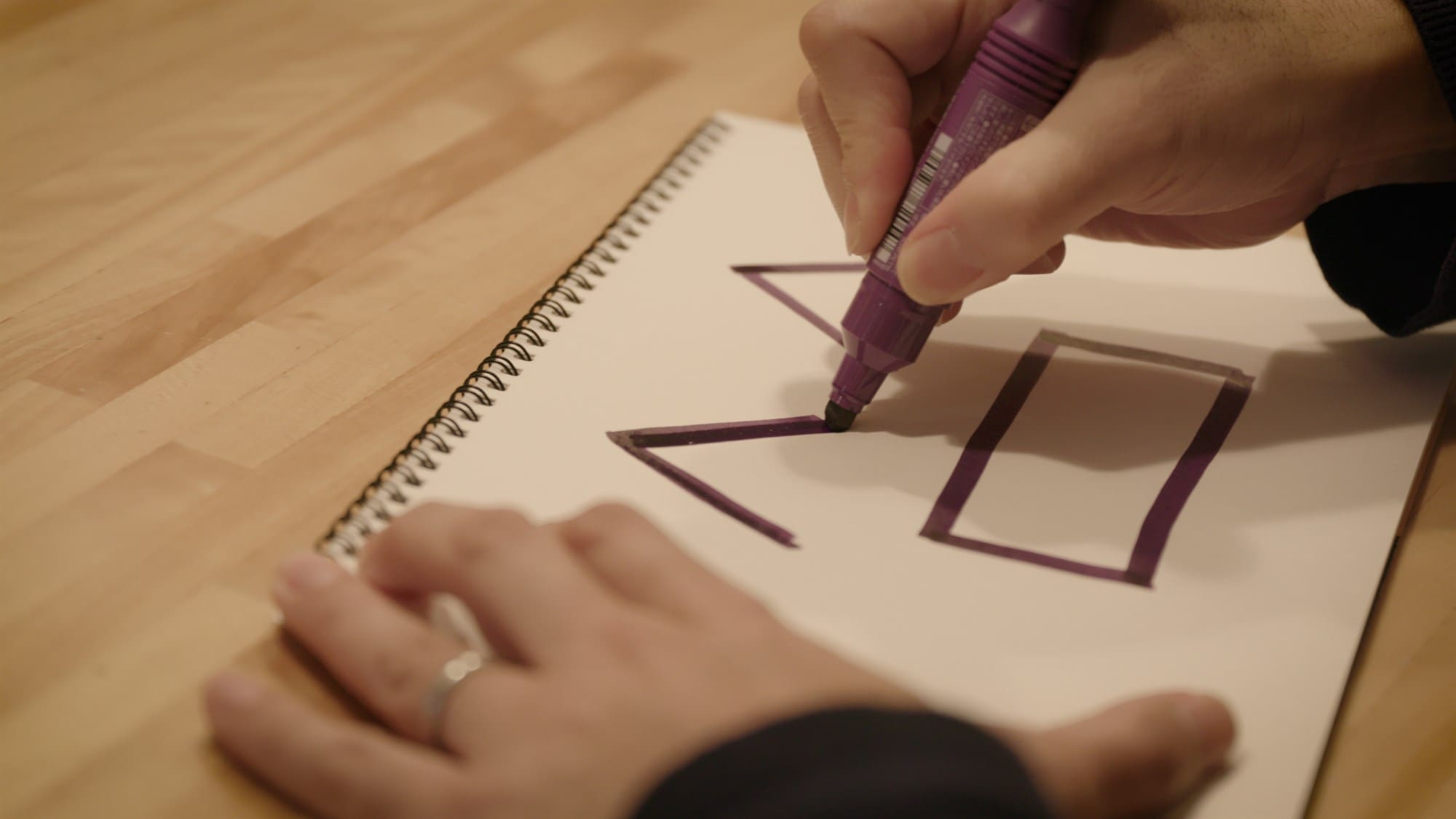
There’s a universe where I really like Picture Character, which premiered at Tribeca this afternoon. Directed by Martha Shane and Ian Cheney, it examines how emojis (literally the Japanese word for “picture character”) came to be, how they’re made now and how sustainable they are as a universal language. It’s well-edited, features a range of voices on the subject and every time there’s an establishing shot in the real world, Shane and Cheney insert an emoji in it like an adult version of the “Search and Find” sections in Highlights magazines. Rather, what keeps Picture Character from landing is that a better version of the ground it covers already exists.
That better version is an episode of Roman Mars’s podcast, 99% Invisible, called “Person in Lotus Position.” In it, producer Mark Bramhill goes from exploring how emojis come to exist to inventing one himself–the person in lotus of the title–all the while introducing other hopeful emoji inventors and giving the listener the information they need to understand the process of how emojis come to exist. That process centers around the Unicode Consortium, a non-profit organization based out of Mountain View, California that has the final say in which emojis come to exist.
Though Picture Character introduces us to some of the members of the Consortium–the chatty, playful, Lisa Moore is particularly enjoyable every time she appears onscreen–it gives little context to help the average viewer understand who and what makes up the Consortium’s emoji sub-committee. Unlike the 99PI episode, Shane and Cheney don’t explain that organizations and even whole countries pay an annual fee for Unicode membership, nor why they would want to do so in the first place. We simply see the crest of the Government of Oman is included on a graphic of the Consortium’s members, but never understand that they’re there to advocate for Arabic countries. Instead, the emoji committee is characterized as a small group of secretive eccentrics and while that may emphasize the film’s point about the limitations of the current system, it also leaves viewers not already acquainted with the subject a little adrift.
That said, what Shane and Cheney do in service of their point is the film’s biggest strength. Namely, that involves a few of the people who applied to add new emojis in late 2016. While two Argentinian women who fight for a maté emoji are wonderful comic relief (they almost never appear without the tea) like drink in their hands–the most compelling is Rayouf Alhumedi, a 15-year-old Saudi Arabian girl living with her family in Berlin who hopes to create an emoji depicting a woman in a hijab.
As Alhumedi herself explains, creating the emoji would not only allow her and other Muslim women to accurately represent themselves, but foster normalization and acceptance. It’s a noble endeavor and Alhumedi is so intelligent and charming that you can’t help but hope she succeeds. Unfortunately, for those who’ve scrolled through their phone’s emojis in the last few year or listened to the 99PI episode, they already know she does. That lack of suspense wouldn’t usually be a dealbreaker, but it takes some of the tension out of the film and it leaves the whole film leaving dated—a kiss of death for something that examines as fast-moving as the tech industry.
Picture Character should be better than it is. It focuses on a fun subject everyone knows but don’t know much about. However, what keeps it from being great is that its directors simply don’t provide the viewer enough information to understand emojis in a meaningful way. Instead, the film gets lost in the emojis themselves, too busy finding creative ways to use them on title cards and introducing us to a song called “Emoji” by a 13-year-old artist pseudonymously named Brooklyn Queen. Granted, the song, which plays during the credits, is catchy and it speaks volumes that it’s the only thing you’ll remember form the whole movie.

